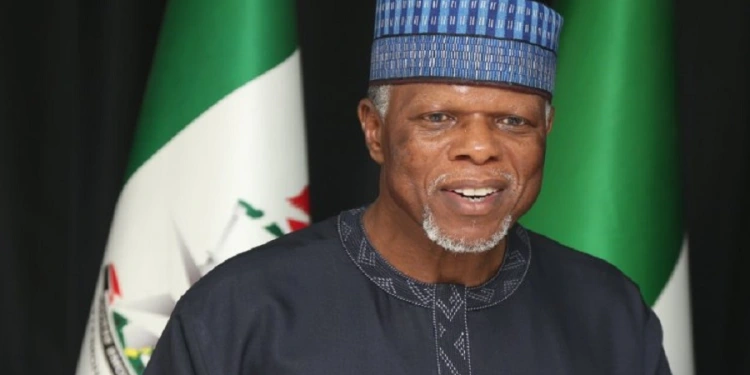MARKETS AND ECONOMY
Customs targets $176bn revenue through e-Customs concession agreement
Published
4 years agoon

The Nigeria Customs Service (NCS) revealed that the implementation of the e-customs project will generate $176 billion in 20 years.
This was disclosed by the Comptroller-General, retired Col. Hameed Ali, on Monday in Abuja during the signing of the e-Customs concession agreement between the NCS, Africa Finance Corporation (AFC), and China’s Huawei Technologies Limited.
Read Also:
He also revealed that the concession would alleviate the cost of doing business and boost productivity for the service,
Ali said, “The $3.2 billion e-Customs project is being financed by the Africa Finance Corporation (AFC) and managed by Huawei Technologies Limited under a 20-year concession window. When fully implemented, it would quadruple Customs’ current N210 billion monthly revenue collection.
“We will be making $176 billion within the next 20 years.
“I appreciate our partners, Huawei Technologies Limited. We had to go to China a couple of times, and today we are going to become fully digitized.
“I thank the AFC for financing this project on behalf of all Nigerians. The success of this project will be on the global map. We are going to hit the ground running.
“The journey has been long and torturous, but we’ve eventually signed the dotted lines. I want to appreciate the Infrastructure Concession Regulatory Commission (ICRC) for the commitment to see the project to fruition.”
Meanwhile, the Acting Director-General of ICRC, Mr. Michael Ohiani, says the project is a migration from analogue to digital. “We urge the concessionaire to stick to the rules of engagement as we will be monitoring the project every step of the way,” he said.
Alhaji Saleh Ahmadu, Chairman, Trade Modernisation Project Limited (TMPL) and project chairman of the concession, said: “As the concession period begins, we wish to assure Nigerians that the revenue target of 176 billion dollars for the Federal Government will be achieved, if not surpassed.
“More importantly, we are excited about the real economic benefits for the country, in terms of business growth for exporters and import-dependent businesses.
“Others are improving global supply chains, enhanced industrial capacity utilization and creation of employment opportunities.’’
Share this:
- Click to share on X (Opens in new window) X
- Click to share on Facebook (Opens in new window) Facebook
- Click to share on WhatsApp (Opens in new window) WhatsApp
- Click to share on Pocket (Opens in new window) Pocket
- Click to share on Telegram (Opens in new window) Telegram
- Click to email a link to a friend (Opens in new window) Email
- Click to share on LinkedIn (Opens in new window) LinkedIn






